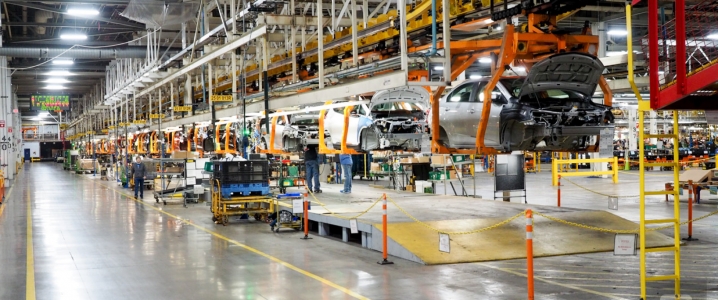German carmakers are increasingly going EV. Volkswagen alone has plans for as many as 80 EV models across its brands by 2025. Also by that year, annual production of EVs should hit 3 million vehicles. But there is a small problem with these plans: they might not be competitive enough. Okay, it’s not a small problem; it is potentially a very big one, and it concerns all German carmakers with EV plans. The root of the problem is in the batteries.
German carmakers have been buying batteries from China and South Korea so actively that German battery makers have scrapped plans for local battery factories, deepening an already heavy dependence on imported products. Bosch, for instance, last year said it planned to splash US$23 billion (20 billion euro) on building battery production capacity of 200 GWh by 2030. Just two months after this announcement in February this year, the car supplier major said it no longer would pursue these plans.
“For Bosch, it’s important to have a technical understanding of cells. We don’t have to make them ourselves,” Electrek quoted Bosch executive Rolf Bulander as saying at the time. Yet a lot of other people in the industry and the country’s Chancellor apparently beg to differ.
In the spring, Angela Merkel said that developing local production capacity for EV batteries was a good idea as it would add value to German carmakers’ products. But more importantly, experts believe that local production will be a safeguard against potential attempts at arm-twisting from foreign suppliers—always a possibility with extreme dependence on imports—and it will also allow the local carmakers to be in control of research and development that could make their cars more competitive. Related: Europe’s Natural Gas Prices Surge To Record For Summer Season
Batteries are one of the costliest components of EVs, which is why their impact on the final price tag is so crucial. “Cells can be a major technology differentiator and cells are the by far most costly part of the battery pack,” a materials science professor from the University of Muenster told The Verge. Martin Winter added that local production of battery cells would greatly affect German carmakers’ chances of success in the booming EV market.
Unfortunately, Winter notes that the development of this production capacity will be “costly and painful.” It is, however, necessary in order for local carmakers to make sure they can take full benefit of future breakthroughs in battery technology that can change the face of the EV market. This is a solid reason for taking the pains and the costs of developing local battery factories: there is so much innovation in batteries right now, that breakthroughs are only a matter of time.
Asian battery suppliers seem to be acutely aware of this, so they are now setting up battery factories on site, The Verge notes in an analysis of the topic. One of Germany’s biggest lithium-ion battery suppliers, Chinese CATL, plans to build a battery factory in Thuringia. BMW has already inked a deal to buy US$4.7 billion worth of batteries from the company’s new facility even though it has its own battery production plans.
Continental is also eyeing battery production in Germany as is Tesla. While it’s true that proprietary battery research would be a best-case scenario, perhaps in the present circumstances, Germany’s automakers could make the best of what they have: at least some local production capacity, even if not all of it German. It’s better than nothing, after all.
By Irina Slav for Oilprice.com
More Top Reads From Oilprice.com:
- IEA: Oil Market To Tighten Toward Year-End
- Oil Jumps On Bullish EIA Data
- Iran Claims It Has Full Control Over The World’s Most Important Oil Chokepoint


















